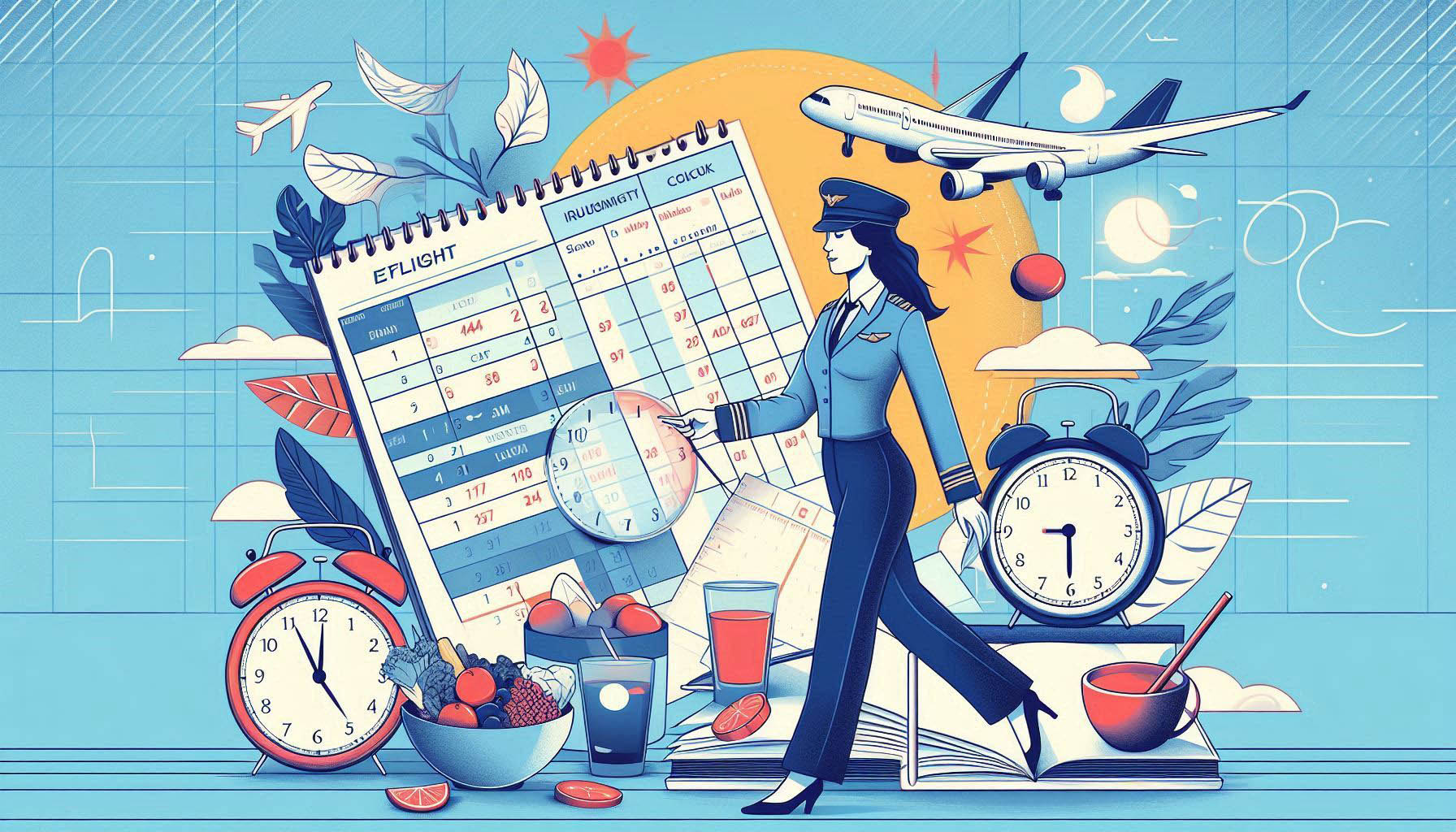Shift Work Disorder: How Irregular Schedules Affect Aviation Professionals
Introduction
Aviation professionals, including pilots, flight attendants, and ground crew, often work irregular hours, disrupting their natural sleep cycles. This disruption can lead to Shift Work Disorder (SWD), a condition that affects those who work non-traditional schedules. SWD can cause chronic fatigue, impaired cognitive function, and long-term health complications, making it a serious concern in the aviation industry.
In this article, we will explore what Shift Work Disorder is, how it impacts aviation professionals, and effective strategies to manage and mitigate its effects. If you work in aviation and struggle with irregular sleep, this guide will provide actionable insights to improve your well-being.
Understanding Shift Work Disorder
Shift Work Disorder occurs when a person’s work schedule conflicts with their body’s natural circadian rhythm, leading to difficulty sleeping, excessive sleepiness, and other health problems. The aviation industry requires professionals to work overnight shifts, early morning flights, and rotating schedules, all of which can contribute to SWD.
Symptoms of SWD
Aviation professionals experiencing SWD may notice:
- Excessive daytime sleepiness – Feeling drowsy or exhausted even after sleeping.
- Difficulty falling or staying asleep – Irregular schedules can prevent deep, restorative sleep.
- Reduced alertness and cognitive function – Impaired decision-making and slower reaction times.
- Mood disturbances – Increased stress, anxiety, and irritability.
- Digestive issues – Disruptions in eating patterns may lead to gastrointestinal discomfort.
- Increased risk of chronic diseases – Long-term sleep disturbances are linked to heart disease, diabetes, and obesity.
Understanding these symptoms is crucial for aviation professionals to recognize SWD early and take proactive measures.
How Irregular Schedules Impact Aviation Professionals
- Circadian Rhythm Disruption
The body’s internal clock, or circadian rhythm, regulates sleep, wakefulness, and other physiological functions. Aviation professionals often work against this natural cycle, leading to chronic sleep deprivation and increased fatigue.
- Fatigue and Reduced Performance
Fatigue is a major concern in aviation, as it affects reaction time, memory, and concentration. Studies show that sleep deprivation can impair performance as much as alcohol intoxication. This poses significant safety risks for pilots and crew members responsible for critical decision-making.
- Increased Risk of Errors and Accidents
Sleep-deprived aviation professionals are more prone to errors. Fatigue has been linked to aviation accidents, highlighting the importance of proper sleep management for flight safety.
- Compromised Mental Health
Irregular schedules contribute to stress, anxiety, and even depression. The constant pressure of adjusting to shifting sleep patterns can take a toll on mental well-being, affecting job satisfaction and overall quality of life.
- Long-Term Health Risks
Chronic sleep disruption increases the risk of serious health conditions such as cardiovascular disease, high blood pressure, obesity, and metabolic disorders. Maintaining a healthy lifestyle is essential to counteract these risks.
Managing Shift Work Disorder in Aviation
- Prioritize Sleep Hygiene
- Maintain a Consistent Sleep Schedule: Try to go to bed and wake up at the same time every day, even on days off.
- Create a Restful Environment: Use blackout curtains, white noise machines, and comfortable bedding to improve sleep quality.
- Limit Light Exposure Before Bed: Reduce screen time and exposure to blue light, which can interfere with melatonin production.
- Avoid Caffeine and Heavy Meals Before Sleep: These can disrupt the ability to fall and stay asleep.
- Strategic Napping for Energy Boosts
- Short naps (20-30 minutes) can help improve alertness without causing grogginess.
- Longer naps (90 minutes) allow for a full sleep cycle and can be beneficial during extended shifts.
- Avoid Napping Too Close to Bedtime, as this can interfere with nighttime sleep.
- Optimize Diet and Hydration
- Eat Balanced Meals: Choose protein-rich foods and complex carbohydrates to sustain energy levels.
- Stay Hydrated: Dehydration can worsen fatigue, so drink plenty of water throughout the day.
- Avoid Sugary and Processed Foods: These can cause energy crashes and digestive discomfort.
- Use Light Therapy
- Expose Yourself to Bright Light During Work Hours: This helps regulate circadian rhythms and improves alertness.
- Minimize Light Exposure Before Bed: Using dim lighting in the evening can signal to the body that it’s time to sleep.
- Incorporate Physical Activity
- Exercise Regularly: Moderate exercise promotes better sleep and reduces stress.
- Stretch and Move During Flights or Long Shifts: This helps prevent stiffness and improves circulation.
- Manage Stress and Mental Health
- Practice Relaxation Techniques: Meditation, deep breathing, and mindfulness can help reduce stress and improve sleep.
- Seek Support: Talking to colleagues or professionals about the challenges of shift work can be beneficial.
- Consider Professional Help: If sleep problems persist, consult a sleep specialist for guidance.
- Use Sleep Aids Wisely
- Consider Melatonin Supplements: Melatonin can help regulate sleep but should be used under medical supervision.
- Avoid Dependence on Sleeping Pills: Prescription sleep medications should be a last resort and used sparingly.
- Explore Natural Sleep Remedies: Herbal teas, essential oils, and relaxation techniques can aid sleep without side effects.
Conclusion
Shift Work Disorder is a significant challenge for aviation professionals, but understanding its effects and implementing effective strategies can improve sleep quality and overall health. By prioritizing sleep hygiene, managing diet and hydration, utilizing light therapy, and incorporating stress management techniques, aviation professionals can mitigate the impact of irregular schedules.
Ensuring proper rest is not just about personal well-being—it’s a critical factor in maintaining aviation safety and performance. If you’re struggling with sleep due to shift work, start implementing these strategies today to enhance your health and job performance in the demanding world of aviation.




